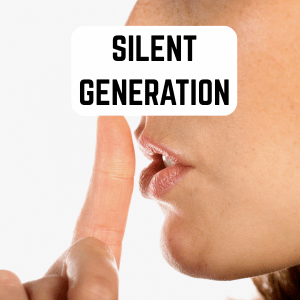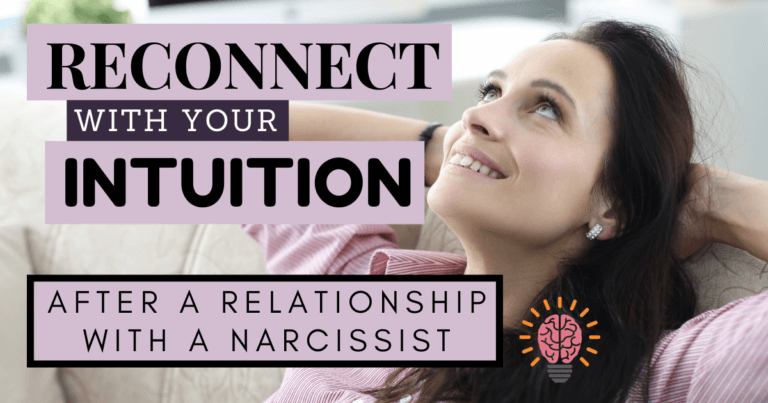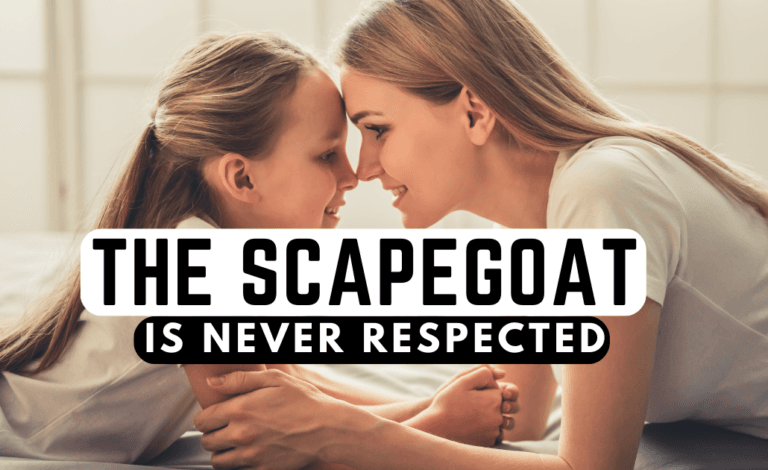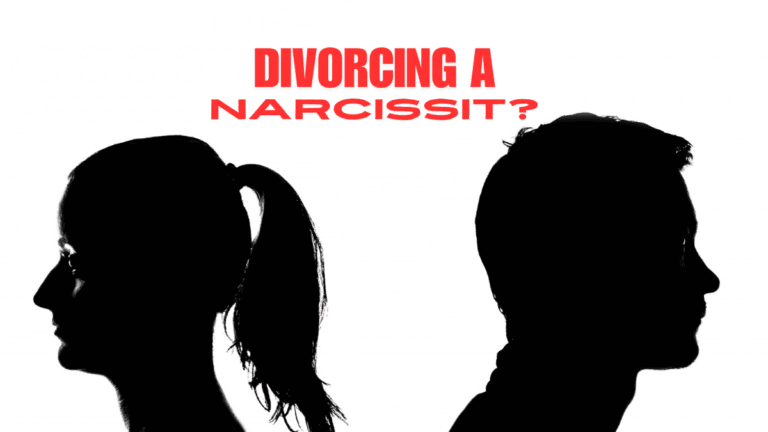How Cultural Scripts Condition Us to Stay Small and How Uncovering the Truth Can Ignite a Soul-Deep Awakening
The following is a transcript from the Narcissistic Abuse Recovery Podcast
Podcast: Narcissistic Abuse Recovery Podcast
Host: Lynn Nichols
Read the article on Substack and join the Publication
Are we teaching silence?
Lynn is a heartfelt advocate for personal growth and empowerment, and writes with raw insight on navigating narcissistic abuse, toxic relationships, and sometimes the societal challenges tied to the patriarchy. With a deeply experiential approach, her stories shed light on the emotional complexities of breaking free from toxic patterns and reclaiming one’s voice. L.N. offers fresh perspectives on gender dynamics, self-worth, and healing, encouraging readers to rebuild from within and revolutionize their relationships.
Lynn is also a trauma-informed narcissistic abuse recovery coach and podcast host. She creates videos on her YouTube channel to bring the message of healing and recovery. Learn more on her website here.
Here’s a question we don’t ask nearly enough.
What if patriarchy doesn’t just hurt one gender but recruits all of us to keep it alive?
What if the system teaching us these roles is less like an unstoppable monster and more like the Wizard of Oz, a shaky little man behind a curtain pulling levers of fear, shame, and control? So much smoke, mirrors and noise to distract, but only powerful as long as we keep believing in it.
Welcome back to the Narcissistic Abuse Recovery Podcast. I’m Lynn, your host.
Today’s Overview:
Today, we are going to unpack how patriarchy conditions us to stay small by teaching silence, compliance, and self-erasure. We will explore where these scripts came from, why they feel so normal, and what it takes to see them clearly. We will look at how isolation keeps us believing our struggles are personal failures instead of signs of a broken system. We will connect these patterns to the risk of narcissistic abuse and share the powerful story of Lucy Stone, a woman who challenged these scripts long before it was safe to do so.
Housekeeping + Podcast Updates
Before we dive into this topic we have some housekeeping and podcast updates to share.
- We’ve updated (and still are updating) our podcast episode titles, descriptions, and links—many titles now include episode numbers. We are adding in subtitles and updating descriptions on our older episodes. If you’ve saved or shared direct links, please double-check they still work.
- Our podcast is hosted on Acast, which distributes to all major platforms (like Spotify, Apple Podcasts, Amazon music, Pandora, I heart radio, etc. last we checked, we are on 29 different podcast platforms). You can always subscribe on Acast to be sure you have the most up to date link, and up to date episodes and receive them as soon as we publish them.
- Some exciting things are unfolding behind the scenes. Stay tuned for additional updates coming soon.
Listen to the Latest Podcast Episode – Narcissistic Abuse Recovery Podcast
What if the rules you’ve been living by were never truly yours? What if they were designed to keep you silent, compliant, and doubting your own worth?
In this powerful episode of the Narcissistic Abuse Recovery Podcast, Lynn unpacks how patriarchal scripts condition us to stay small and why unlearning these patterns is key to real freedom and healing.
🔹 See how isolation isn’t random but a strategy designed to keep you disconnected, ashamed, and convinced your pain is a personal failure.
🔹 Explore how subtle side-eye glances, laws, religion, and culture taught generations to trade authenticity for approval.
🔹 Learn why these inherited scripts don’t just hurt women but create fertile ground for narcissistic abuse to flourish in silence.
🔹 Hear the electrifying true story of Lucy Stone, the fearless pioneer who dared to question everything and sparked the women’s rights movement long before most women were allowed to speak.
🔹 Understand the emotional and historical roots of self-silencing, and why questioning these patterns can lead to a soul-deep awakening.
🔹 Reflect on powerful questions: Have you ever felt like life doesn’t fit? Are you tired of carrying blame that was never yours? Do you wonder what it feels like to live unbound by cultural expectations?
This episode is for anyone who senses there’s more to life than the scripts they were handed. It’s for those ready to break the silence, reclaim their story, and see how unlearning patriarchal conditioning is essential for emotional safety and authentic connection.
Follow or subscribe to our Narcissistic Abuse Recovery Podcast – available on all major networks here
If you’re ready to see the truth behind the scripts, awaken to new possibilities, and subscribe for more conversations that go deeper than anyone else will, hit play now. Let’s unravel these patterns together.
Watch the Video on YouTube
Ep. 92 Why Patriarchy Indirectly Teaches Silence, Isolation, and Your Compliance — How Cultural Scripts Condition Us to Stay Small and How Uncovering the Truth Can Ignite a Soul-Deep Awakening
Challenging the Script
So what are the patterns? How are we culturally conditioned? And who is doing this conditioning?
Are we all just following a script, making sure everyone around us sticks to the same lines? Do people get irritated when someone they know—or even a stranger—hasn’t bought into the script, when someone dares to question things out loud, to think differently right in front of them?
Let’s explore this together.
We don’t come into the world knowing these scripts. We are taught them. We’re taught them by families who mean well, by cultures that fear change, by stories older than anyone alive today. Some of us don’t even know the history or the roots of why we do the things we do. Some of us just place inherent trust in the system, without ever asking who built it or why.
I remember growing up hearing the phrase, “that’s just what we do.” And I asked, “who does?” Who are these people, these imaginary enforcers out there making sure we live and think according to certain cultural standards?
Related: Why are so many women drained by good men? Episode 91
Naming the Patterns
Some of us were taught love means erasing ourselves, that our worth comes from giving, pleasing, and fixing until there’s nothing left. Others were taught feelings are dangerous, that tears are shameful, that admitting we’re scared or sad makes us look weak or unworthy of love.
These lessons don’t come with warning labels. They’re slipped into cartoons, subtle comments, and side-eye glances.
Learn about Lucy Stone and Why It’s Important
Have you ever felt your stomach twist because you wanted to say something, but the voice in your head whispered don’t? Don’t cause conflict. Don’t make waves. Don’t be too much.
That phrase alone has kept generations silent for far too long.
Or maybe you’ve felt like you had to stay unshakable, like if you let your guard down for even a second, you’d lose respect or be left alone.
These aren’t random habits. They’re patterns carved into us by a system that decided long ago who should speak and who should shrink.
And here’s something that might feel shocking, or maybe like something you’ve always felt but never said out loud: these scripts don’t protect us. They keep us lonely. They keep us small. They convince us that emptiness is a personal failure instead of what it truly is, the predictable result of a system that wants us isolated.
Related: The Silent Brotherhood – Listen on Gumroad
Did you know isolation isn’t just coincidence? That it’s designed to keep us compliant?
Did you know when we’re disconnected from each other, we’re easier to control?
Because when we don’t compare notes, we don’t notice patterns.
Did you know that isolation makes us believe our struggles are personal failures instead of signs of a broken system?
Did you know why they demonized gossip among women? Because if women talk to each other, they start to see patterns of control and abuse, and sharing those truths threatens the power of those who benefit from their silence.
How much of your life has been shaped by scripts you never chose?
Let’s step back for a moment. Understanding where this came from helps us understand why it’s so hard to let go. For centuries, women were taught their entire identity came from being attached to men, first to a father, then to a husband. The law agreed. Religion agreed. Culture agreed.
Law Religion and Culture
Even as laws changed, those expectations clung to us. Women were praised for being selfless, sacrificing, and sweet, and punished, often harshly, for being ambitious, loud, or independent.
At the same time, boys were told to never cry, never need, never depend. And if they did, they learned quickly that tears and fear would earn mockery or worse.
For generations, the law stripped women of basic rights like owning property or opening a bank account without a man’s permission. And while some women could inherit property, it rarely meant true ownership—because fathers, brothers, or husbands were often the ones with legal control. Inheritance without authority kept women dependent and silenced their power.
Religion drilled obedience into women as a sacred duty, praising silence, submission, and self-sacrifice as if they were holy virtues. Culture hammered these roles home through fairy tales, nursery rhymes, jokes, and insults that celebrated men’s authority and ridiculed women’s ambitions.
These weren’t harmless traditions. They were strategic tools, crafted to keep power exactly where it was.
Everything we’ve been taught deserves to be questioned—our ideas about love, gender, family, strength, even what it means to be a “good” person. And let me tell you, this path isn’t easy. It shakes you. It can leave you feeling lost or alone. But questioning these scripts is the only way to reclaim a life that’s truly your own.
Personal Story: Breaking the Silence
People sometimes tell me how bold it is to speak about these things out loud. I remember when I was just a young teenager, already wondering why we do the things we do and noticing injustice that others seemed to accept without question. I saw how the older women in my life, many from what is known as the Silent Generation, seemed to know these truths but dared not speak them.
And when I brought it up and called it out, they literally had no words.
They knew what I was touching on was the elephant in the room. Yes, we are addressing the Elephant in the Room. Did you know our YouTube Channel is called Wake the Elephant?
The Silent Generation born roughly between the mid-20s and mid-40s—earned their name because they were taught to keep quiet, to avoid rocking the boat, to endure without complaint. Fear of social shame or social ostracization, loss of family standing, and religious or community backlash kept them silent plus the financial implications if they spoke out could be disastrous. They were not at liberty to question or name what they saw, and the cost of breaking that silence was simply too high.
That is why it matters so much that we speak now. By voicing what others before us could not, we honor the unspoken stories of those who came before us and begin to build a world where silence is no longer the price of belonging.
And so it goes. These lessons passed from one generation to the next, quietly, invisibly, powerfully.
So how does change begin? It starts with noticing. It grows when we find the courage to speak what we see and feel. It becomes stronger when we share these truths with others who listen and understand. Every time we name these patterns, we weaken the illusion that they are normal or unchangeable.
Where did these scripts come from? Long before we were born, men created systems to secure their dominance. They wrote laws, controlled property, limited women’s education, and enforced silence.
These foundations shaped the roles we inherit today. When we realize how deep these roots run, we can see why these patterns feel so hard to break and why they are not our personal failings.
Why did patriarchy make silence a virtue? Silence keeps the system safe. When we do not speak our needs or share our truths, the hierarchy remains intact. But silence costs us connection, joy, and our own voices. What has your silence cost you?
What happens when we question these roles? Many of us fear being labeled difficult, ungrateful, or dramatic. This fear is not accidental. It was crafted to keep us from questioning who benefits when we stay small. Have you ever felt punished or shamed for refusing to perform your assigned role?
Lucy Stone
I had the pleasure of spending time in central Massachusetts and learned about a young woman who helped ignite the women’s rights movement. Her name was Lucy Stone.
Born in 1818, she became a trailblazing American suffragist and abolitionist. She was the first Massachusetts woman to earn a college degree, graduating from Oberlin College in 1847. Around age 25, Lucy began traveling town to town giving powerful speeches on women’s rights, demanding equality in a society determined to keep women silent.
She organized and led some of the first national women’s rights conventions, including the 1850 convention in Massachusetts. She famously kept her maiden name after marriage as a protest against laws treating wives as property, which is why women who keep their names today are sometimes called “Lucy Stoners.”
Lucy also founded and edited The Woman’s Journal, a leading women’s rights newspaper of the 19th century. Her husband, Henry Blackwell, supported her efforts and stood with her in challenging the norms of their time.
Lucy Stone’s courage shows that questioning the scripts we inherit isn’t new or impossible. Even when women faced overwhelming barriers, some dared to speak—and some men chose to stand with them.
There is a blog article on Lucy Stone on our website. Head to Moving forward after abuse dot com and read it when you have some time.
How do these patterns show up in relationships? They appear in who holds the emotional labor, who apologizes first, who changes plans to accommodate others, and who feels safe expressing anger. Naming these patterns helps us reclaim agency and invites partners, friends, and family to step into healthier dynamics.
How does change begin? It starts with noticing. It grows when we dare to speak our truths. It becomes stronger when we share these realizations in community. Every time we name these scripts, we soften the grip of the belief that they are natural or unchangeable.
We were told love means losing ourselves, but real love celebrates our wholeness. We were told strength means silence, but true strength comes from truth. We were told our worth depends on pleasing others, but our worth has never needed permission.
If you are new to our podcast, welcome. We have many new subscribers. Since Episode 69, The Narcissistic Abuse Recovery Podcast has been fearlessly deconstructing the patriarchal systems that silence, shrink, and shame. We go beyond surface conversations, unraveling taboos, challenging outdated norms, and opening doors to topics so often labeled off-limits. Each episode invites you into bold, nuanced dialogue that validates lived experiences and empowers collective truth-telling.
If you are ready to explore the deeper layers and follow the questions others will not ask, you are in the right place.
Now a little bit about the system. The system that operates behind the scenes that seems to keep everything going seamlessly though invisibly but a couple things I want to point out about that system.
The patriarchy is not about individual men being inherently evil or women being helpless. It is a social system intentionally created and enforced by men over generations to secure and protect their dominance. From childhood, men were conditioned to believe this hierarchy was natural and right, just as women were conditioned to comply, self-silence, and even police themselves and one another. This mutual conditioning made patriarchy feel normal, leaving it unchallenged for centuries. It was not until women began speaking out and demanding equality that many men were even forced to see patriarchy for what it is. And even then, many chose to defend it because questioning it meant risking the comfort of unearned power. Recognizing that men are both products and active carriers of patriarchy does not absolve them of responsibility. Instead, it highlights the urgent need for both men and women to unlearn these harmful scripts together and to build relationships and communities grounded in mutual respect and equality.
Teaches Silence
And it’s important to remember that these patriarchal scripts don’t just shape our everyday lives they also set the stage for narcissistic abuse. When a system teaches us to silence ourselves, accept blame, or feel unworthy, it creates the perfect environment for abusers to manipulate, control, and exploit. By questioning these scripts, we don’t just heal individually; we also build resilience against patterns of narcissistic abuse that thrive in silence and self-doubt.
I hope you have enjoyed this episode. If you have and enjoy discussing the patriarchy deconstructing it and relearning and thinking differently, you are in the right place. Drop us a favorable review on whichever platform you are listening on today.
We have additional resources on our website at moving forward after abuse dot com. And visit our Gumroad store at waketheelephant dot gumroad dot com for downloadable episodes and more. These links are in the description.
Thank you for listening. This is Lynn, and I hope today’s conversation has sparked an awakening in you a moment where something clicked, where you saw old patterns with new eyes, and felt a rush of possibility for a different kind of life.
Because once you see these scripts for what they are, you cannot unsee them. And from that awareness comes the chance to choose something truer, freer, and more deeply yours.
I’ll catch you in the next one.
teaches silence teTeaches silence aches silence teaches silence teaches silence teaches silence teaches silence teaches silence teaches silence teaches silence teaches silence teaches silence teaches silence teaches silence teaches silence






